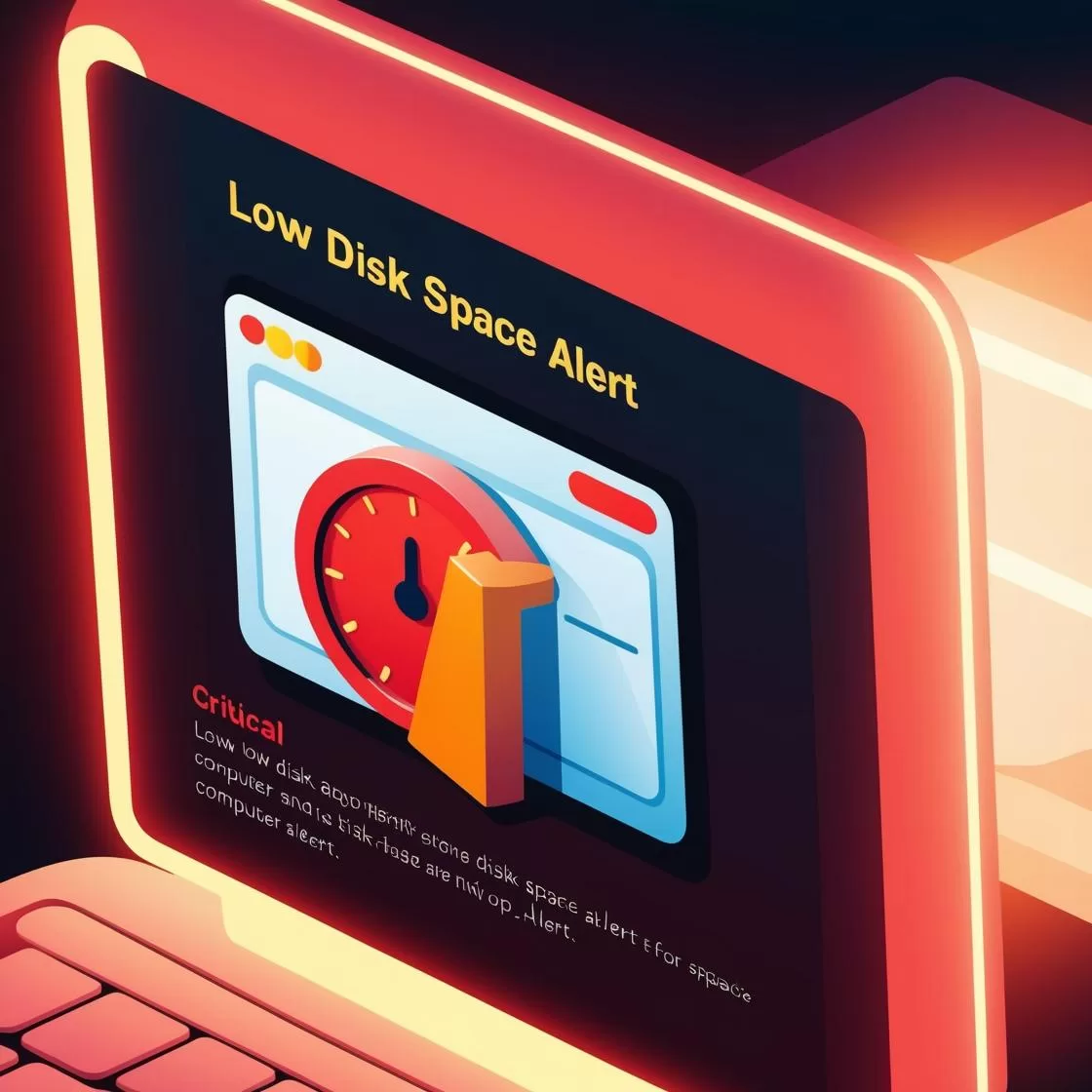Don’t Let Your Hard Drive Overflow: Simple Tips to Keep Your PC Healthy
Ever seen a “Low Disk Space” message pop up on your PC? Or noticed your computer slowing to a crawl for no obvious reason? These are telltale signs your hard drive is nearly full—and ignoring them can lead to even bigger headaches.
At Novo IT, we use proactive monitoring tools (like RMM systems) to catch these issues before they impact users. Alerts like “SYSTEM_VOLUME drive has passed 90.0%” help us step in early, but here’s what you, as a Windows user, might notice—and how to prevent storage issues from piling up.
Signs Your Hard Drive is Running Out of Space
While you won’t see technical alerts like we do, Windows will let you know when storage is running low with:
- Pop-up Notifications: Messages like “You’re running low on disk space on [Drive]” appear in the system tray.
- Sluggish Performance: Your PC may take longer to boot or respond to commands.
- Saving Errors: You might see “There is not enough disk space to save this file” when trying to save documents or media.
- Windows Update Failures: Updates won’t install, often with a prompt to free up space.
- Red Drive Indicators in File Explorer: When you open This PC, the storage bar for your drive turns red when it’s critically full.
How to Prevent Storage Issues
- Clean Up Your PC
- Use Disk Cleanup to clear out temporary files, recycle bin contents, and other junk.
- Check for large, unnecessary files with tools like WinDirStat or TreeSize Free.
- Remove Unused Software
Go through your installed programs and uninstall anything you don’t use anymore. Some apps, especially games or editing tools, can take up massive amounts of space. - Offload Large Files
- Move photos, videos, and other media to an external hard drive or cloud storage.
- Regularly review your downloads folder and delete files you no longer need.
- Enable Storage Sense
Windows’ Storage Sense feature can automatically delete temporary files and manage storage. You can enable it under Settings > System > Storage. - Keep System Restore in Check
Reduce the space allocated for system restore points if it’s taking up too much room, but leave enough for emergencies.
Why Full Drives Cause Problems
When your hard drive is too full, your PC struggles to function. There’s less space for temporary files and virtual memory, which can lead to:
- Slower performance
- Crashes or freezing
- Failed updates
By acting on these issues early, you can avoid the frustration of a sluggish computer and keep everything running smoothly.
Need Help? We’ve Got You Covered
At Novo IT, we use tools to monitor and manage storage issues before they impact your day. Whether it’s setting up automated alerts or helping with regular maintenance, we’re here to ensure your systems stay in top shape.
Got storage concerns or a PC that’s feeling sluggish? Give us a call—we’re happy to help!
Disclaimer: This article was created with the assistance of AI tools based on prompts and guidance provided by Novo IT Ltd.


Comments are closed